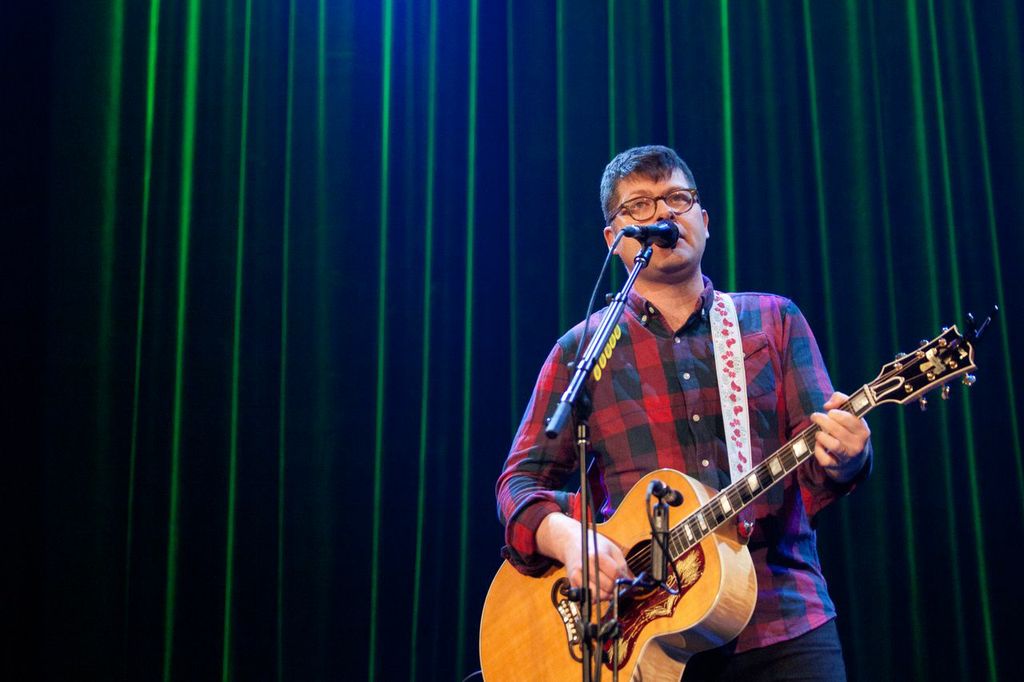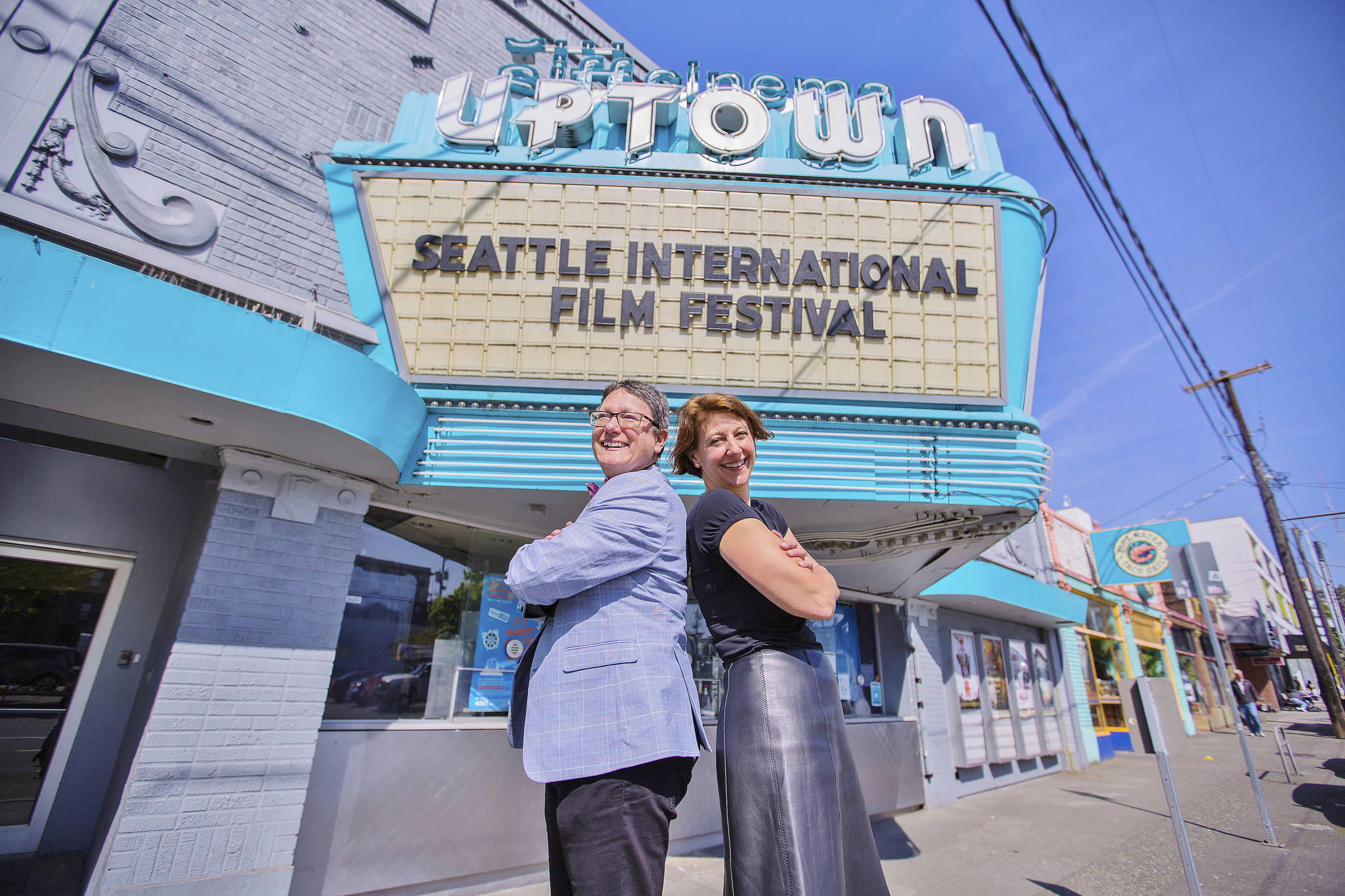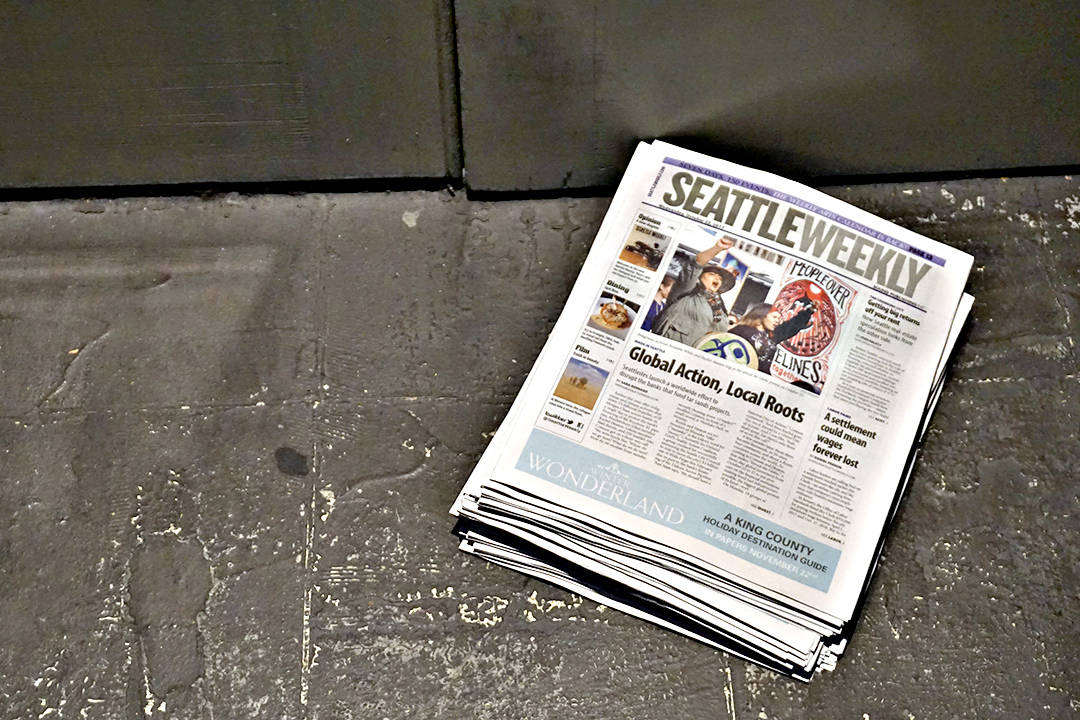Promptly at 9 o’clock Colin Meloy ambled onto the Neptune Theatre stage, slung his acoustic guitar around his neck and introduced his first song of the night, a new one called “The Singer Addresses His Audience.” As he began to strum, someone in the audience began clapping along. He stopped. “You don’t know this song,” he said in good humor. “Why are you clapping?”
Whether or not the song will be on the next album by Meloy’s Portland folk rock band The Decemberists wasn’t quite clear. In a way it seemed written for this particular occasion, the final night of a brief solo tour during which the 39-year-old songwriter is testing out new material while refreshing his audience’s hunger for the band’s distinctive songs, fantastical tales of love and adventure dense with fifty cent words, flavored with wry humor and delivered in the Montana native’s pinched, quavering, faux-British-accented voice. Now three years since his band’s sixth album, The King is Dead, the audience is left to wonder what is next. “The Singer Addresses His Audience” assured them that it wouldn’t necessarily be what they wanted, but that it’s all a little more complex than that.
“We know, we know we belong to ya,” he sang, strumming a simple measured progression. “We know you’ve built your life around us, and would we change? We had to change some….”
Then Meloy, dressed in a wrinkled flannel shirt (that it appears he also wore the night prior in Portland), his hair high-and-tight, gave the audience exactly what it wanted. First was a true rendition of “Oceanside,” the opening track from The Decemberists’ 5 Songs EP, its earliest release dating back to 2001. “This is a song about the ocean,” he said before deadpanning: “That’s my VH1 Storytellers moment.”
Next he provided a glimpse into his personal life by introducing a song he said was written in attempt to “induce my child to eat.” “Hank, eat your oatmeal,” he sang repeatedly to laughter before seguing seamlessly—yet somewhat incongruously considering the subject matter—into “Calamity Song,” a more recent favorite about the end times that, on The King is Dead, is quickened by an insistent drum beat and Peter Buck’s mandolin. In the hands of the solo singer, though, it slowed slightly and opened up, allowing Meloy’s “aaaaah oooooh”s to fill the space patiently.
Meloy then introduced another favorite by appealing to Seattle Seahawks fans. “In honor of your football team, here is a song about a 1984 YMCA soccer game in Helena, Montana.” The lights switched to the Seahawks colors of green and blue and Meloy jogged into the jaunty track, “The Sporting Life.”
This is how most of the evening went, relaxed and casual, with pithy remarks and revealing asides filling the space between melodic displays of high-minded word-play and heart-warming sing-alongs. This, Meloy reminded the audience, was meant to be a sort of campfire show and participation was welcome. The audience obliged for renditions of “Engine Driver” and “On the Bus Mall” before Meloy diverted the concert.
Informing the audience that The Decemberists had been in the studio recently and that their hiatus would soon come to an end, he played two more new songs. Both songs appeared to still be in the early stages of development, lacking the embellishments and dynamics that mark Meloy’s greatest work. Neither was introduced with a title, but both were love songs, each focusing on the memory of a past passion.
“I needed you to make me better, but we’re not so starry-eyed anymore,” he sang as the first song built in intensity, ending with Meloy banging on his strings and emphatically belting the line, “Did it make you better.”
The second was a more fond remembrance, played more delicately and recounting a tryst with a lover “full and sweet as honeydew” and involving the narrator who was “17 and terminally fey” and who “wrote it down and threw it all away.”
The reception was warm, but not enthusiastic, which is fair. As Meloy said between the two new songs, it was as if the campfire sing-along had been hijacked by someone singing songs that no one else knew. True. While these fans, like all music fans, are interested in what’s next, they showed up and paid $30 for what they knew.
To return the reverent audience to its prior heightened state, Meloy closed the set with the eponymous three-song cycle from 2006’s The Crane Wife. Not as immediately catchy as most of the evening’s material, the 15-minute long story-song based on a Japanese folktale resonated, for me, with the message relayed in the evening’s opener. Meloy is not always going to deliver what we want. For the first eight minutes, I was restless, having long ago written off The Crane Wife as a lesser work. But as the song-cycle built to its finale I could feel it working on me. By the end I was moved to sing along with the rest of the crowd. Perhaps the band does know best after all.








